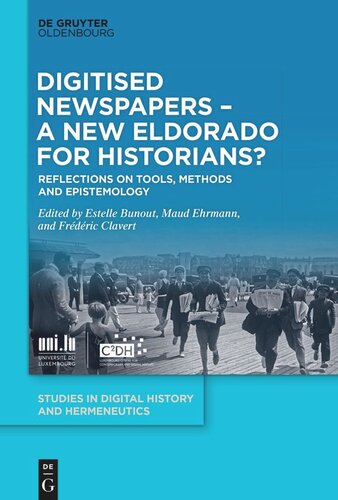

Most ebook files are in PDF format, so you can easily read them using various software such as Foxit Reader or directly on the Google Chrome browser.
Some ebook files are released by publishers in other formats such as .awz, .mobi, .epub, .fb2, etc. You may need to install specific software to read these formats on mobile/PC, such as Calibre.
Please read the tutorial at this link: https://ebookbell.com/faq
We offer FREE conversion to the popular formats you request; however, this may take some time. Therefore, right after payment, please email us, and we will try to provide the service as quickly as possible.
For some exceptional file formats or broken links (if any), please refrain from opening any disputes. Instead, email us first, and we will try to assist within a maximum of 6 hours.
EbookBell Team

4.0
36 reviewsOpen Access
The application of digital technologies to historical newspapers has changed the research landscape historians were used to. An Eldorado? Despite undeniable advantages, the new digital affordance of historical newspapers also transforms research practices and confronts historians with new challenges. Drawing on a growing community of practices, the impresso project invited scholars experienced with digitised newspaper collections with the aim of encouraging a discussion on heuristics, source criticism and interpretation of digitized newspapers.
This volume provides a snapshot of current research on the subject and offers three perspectives: how digitisation is transforming access to and exploration of historical newspaper collections; how automatic content processing allows for the creation of new layers of information; and, finally, what analyses this enhanced material opens up.
‘impresso - Media Monitoring of the Past’ is an interdisciplinary research project that applies text mining tools to digitised historical newspapers and integrates the resulting data into historical research workflows by means of a newly developed user interface. The question of how best to adapt text mining tools and their use by humanities researchers is at the heart of the impresso enterprise.